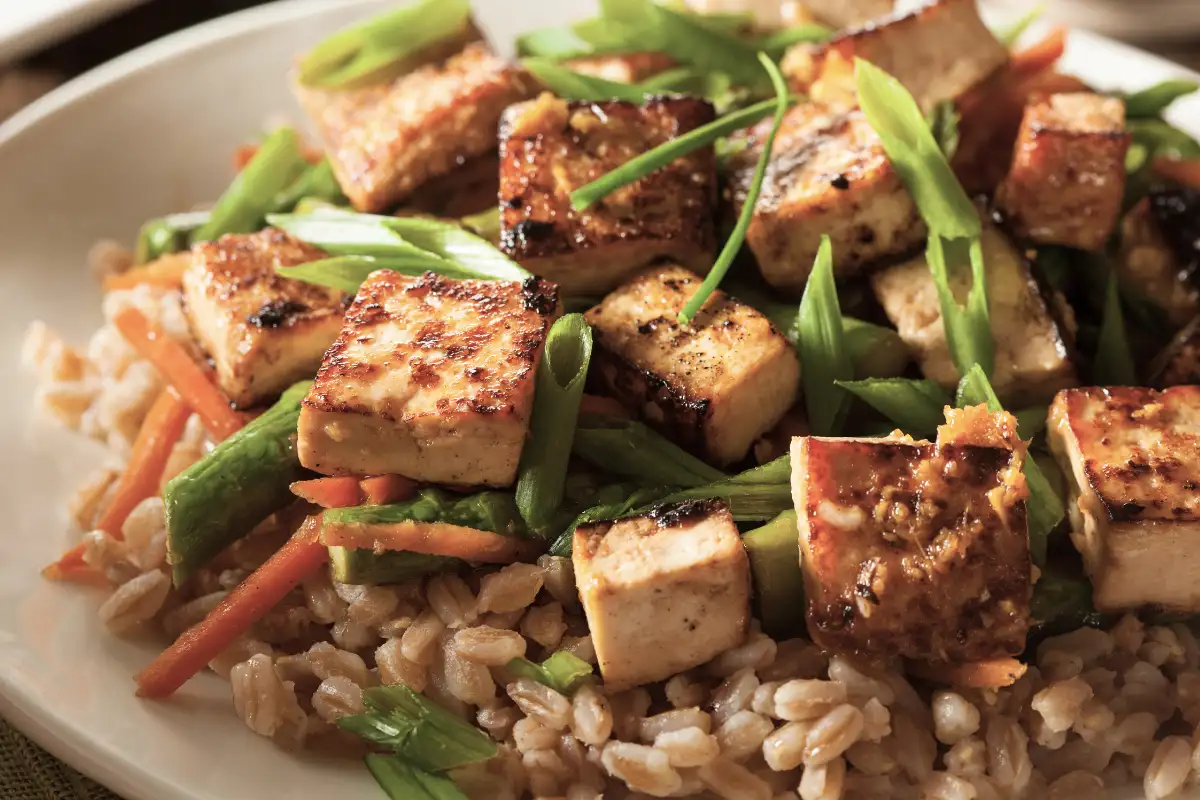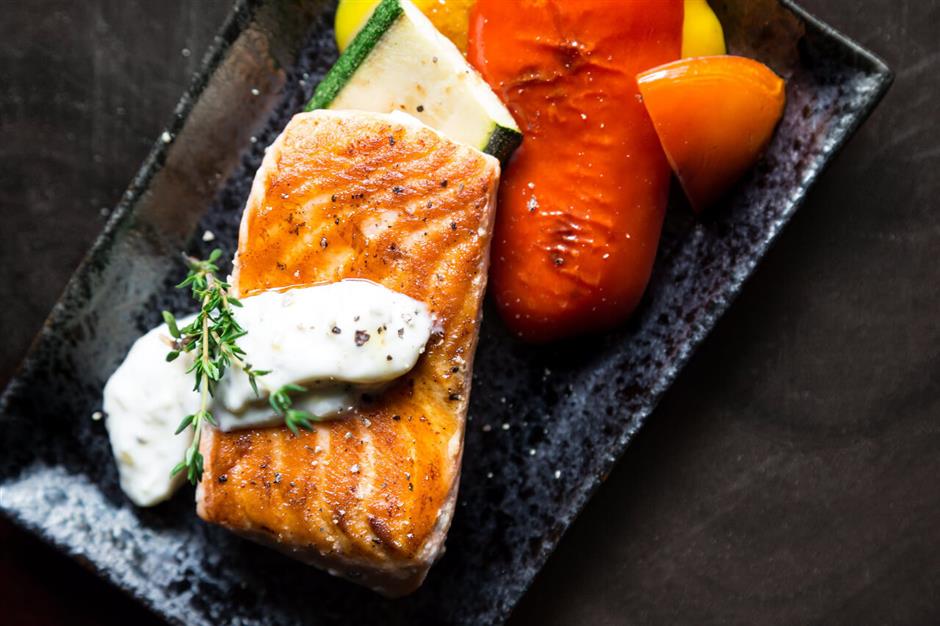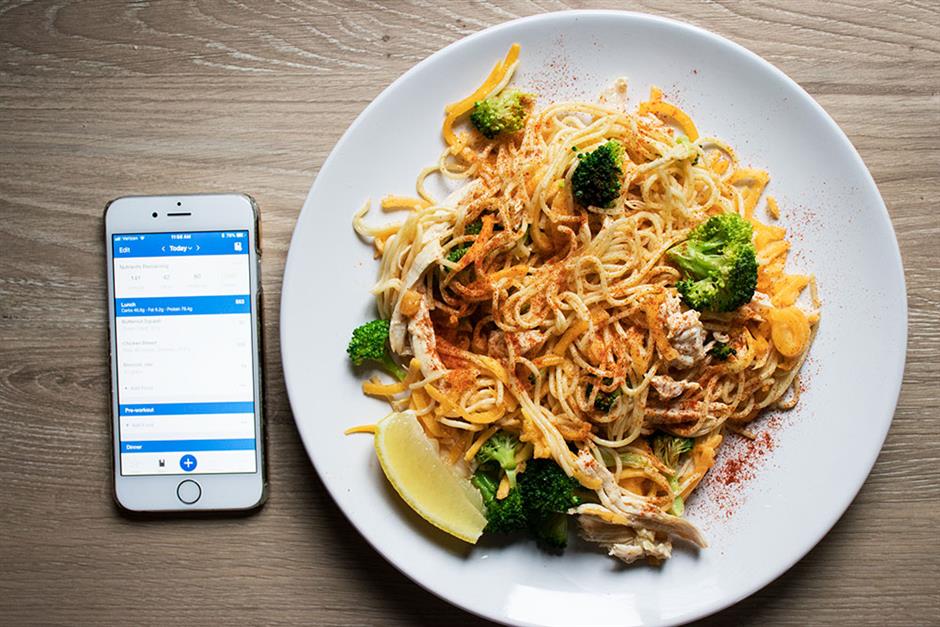The new year is the perfect time to set fresh fitness goals and make lasting changes to your health and wellness routine. While exercise is crucial, what you eat is just as important in supporting your fitness journey. Whether you want to lose weight, gain muscle, or improve overall performance, the right nutrition can give you the energy and results you need.
In this article, we’ll share ten practical and effective nutrition tips for fitness goals and staying on track all year. We’ll also share some of our favorite resources to put each strategy into practice.
Let’s dive in!

1. Set Realistic Nutrition Goals for Your Fitness Journey
Why Setting SMART Nutrition Goals is Key to Fitness Success
There is no need to reinvent the wheel here. You’ve likely heard of SMART goals before; people talk about this framework because it works.
Setting SMART goals (specific, measurable, attainable, relevant, and time-bound) is a tried-and-true method that helps you set achievable goals and measure progress along the way. Ensure that your goals using the SMART framework align with your fitness objectives, like improving muscle mass or fueling workouts effectively.
Here’s an example:
“I will increase my daily protein intake to 120 grams per day over the next four weeks by adding a source of protein to each meal, such as chicken, fish, tofu, or a protein shake, to support muscle recovery and help with fat loss.”
SMART breakdown:
- Specific: Increase daily protein intake to 120 grams by adding protein to each meal.
- Measurable: Track protein intake daily to ensure you reach 120 grams.
- Achievable: Protein-rich foods are easily accessible, and adding a protein source to each meal is a practical strategy.
- Relevant: Increasing protein intake aligns to support muscle recovery and fat loss.
- Time-bound: Achieve this goal within four weeks.
Use WAG's free Goal Setting Worksheet to dive into this even more.
2. Prioritize Protein for Muscle Recovery and Satiety
The Role of Protein in Supporting Fitness Goals
Protein is essential for building and repairing muscle after workouts. Increase your protein intake with lean meats, plant-based options, and high-quality protein sources to support muscle growth and fat loss.
Need some inspiration? Find exactly how much protein you need with our free Macro Calculation Cheat Sheet. Then, use the following resources to increase your daily protein intake.


How to Eat More Protein: 7 Easy Tips to Try Right Now
Protein keeps you satiated, and it is essential for building, repairing, and preserving muscle. Use these easy tips to hit your daily protein goal!
Read Now

How to Eat More Protein as a Vegan or Vegetarian
In modern-day food culture, protein is synonymous with animal foods. In fact, you may have heard that it’s impossible to get enough protein in your diet as a vegan or vegetarian. Luckily, that isn’t the case...
Read Now
3. Plan and Prep Your Meals for Consistency
Meal Planning Tips to Stay On Track with Your Fitness Nutrition
Meal prepping is a game-changer for busy schedules. Read our ultimate meal prep guide and discover how planning can help you avoid unhealthy choices and stay consistent with your nutrition goals.


WAG's Ultimate Meal Prep Guide
Meal prepping for yourself? Your family? One day at a time? A week at a time? This Meal Prep Guide is the ultimate compilation of strategies.
Read Now
4. Stay Hydrated to Fuel Your Workouts
How Hydration Impacts Fitness Performance and Recovery
Water plays a vital role in energy levels and workout performance. Learn how much water you need daily and how to stay hydrated, even on busy days.


How Much Water Should I Drink? Hydration Tips for Weight Loss and Performance
How much water should I drink? This is a question we always get as Working Against Gravity coaches. And although the answer is somewhat personalized, there are some general hydration rules and guidelines we can all follow to ensure we’re drinking enough.
Read Now
5. Focus on Whole Foods for Optimal Nutrition
Why Whole Foods Are Better for Your Fitness Goals
Switching to whole, nutrient-dense foods like fruits, vegetables, and whole grains can fuel your body to perform at its best. Here’s how to make healthier swaps in your diet.


How to Minimize Your Hunger and Maximize Your Results
Calorie deficits can be tough. Higher hunger, lower energy, and decreased mood are just a few of the more obvious side effects of eating fewer calories than you expend.
Read Now
6. Time Your Meals for Maximum Workout Performance
The Best Pre- and Post-Workout Nutrition Tips
What you eat before and after a workout can directly impact your performance and recovery. Learn what to eat to maximize your gains and energy levels.


How to Optimize Nutrition Timing for Your Workout Routine
Nutrition timing can take an experienced tracker and athlete from really good to great. On the flip side, it can be the thing that takes a newer tracker and athlete from being consistent and excited about their journey to being massively confused. But what is nutrition timing, and how can it help you achieve your performance or aesthetic goals?
Read Now
7. Don’t Fear Healthy Fats for Better Energy and Performance
The Importance of Healthy Fats in Your Fitness Nutrition Plan
Fats are an essential nutrient for energy and hormone balance. Learn which fats support fitness goals and how to incorporate them into your meals without overindulging.


Healthy Fats for Weight Loss: Recipes & Easy Sources
Fat can get a bit of a bad rap, but the truth is fats are essential to the body. They have many positive benefits, including supporting joint health, nutrient absorption, healthy hormones, and digestion. They also keep our nails, hair, and skin looking great!
Read Now
8. Be Mindful of Portion Sizes for Better Control
How Portion Control Can Support Weight Loss and Muscle Gain
Understanding portion sizes helps you stay within your calorie goals while ensuring you get the right nutrients for your fitness goals. Learn practical tips for portion control without needing a scale.

Alternatives to Macro Tracking: Creative Ways to Build Consistency Without Counting Your Macros
There is a time and place for precisely tracking everything you eat. There is also a time and place for finding alternatives to macro tracking that allow you to feel accountable for your nutrition choices without the extra math, planning, and phone apps.
Read Now
9. Track Your Macros with a Food Tracking App
How Food Tracking Helps You Stay on Target with Fitness Goals
Tracking what you eat helps you stay accountable and meet your nutrition targets. Find out how our favorite food-tracking apps can help streamline the process.


MacrosFirst Tutorials: WAG Nutrition Ultimate Playlist
MacrosFirst is our favorite app for counting macros over here at Working Against Gravity! Because it is the macro tracking app we recommend to our members, we created a big list of MacrosFirst tutorials to make the tracking process as quick and easy as possible.
Read Now

The Complete Guide to MyFitnessPal Tutorials
Over the last few years we’ve written and recorded video tutorials for the most requested MyFitnessPal How-To’s. We put together this list of our top nine tutorials to make it easy for you to access at any time.
Read Now
10. Give Yourself Grace and Stay Consistent
The Power of Consistency in Reaching Your Fitness Nutrition Goals
The key to success isn’t perfection—it’s consistency. A 1-on-1 WAG coach will design a 100% personalized program based on your body, training, goals, and lifestyle. Then, they’ll teach you how to stay flexible with your nutrition while maintaining long-term habits that will keep you on track.
Learn more about WAG nutrition coaching here!
Final Nutrition Tips for Fitness Goals
Starting the new year with a solid plan for your nutrition can set you up for success in achieving your fitness goals. Implementing these ten simple yet effective nutrition tips for fitness goals will fuel your body correctly, support muscle recovery, and optimize your workout performance.
Remember, consistency is critical, and small changes add up over time. Start with one or two tips and gradually build them into your routine. Don’t forget to track your progress and celebrate your wins along the way!
Ready to take your nutrition to the next level? Download our free Goal Setting Worksheet and consider personalized nutrition coaching to help you achieve your fitness goals faster. Let’s make this year your healthiest one yet!






